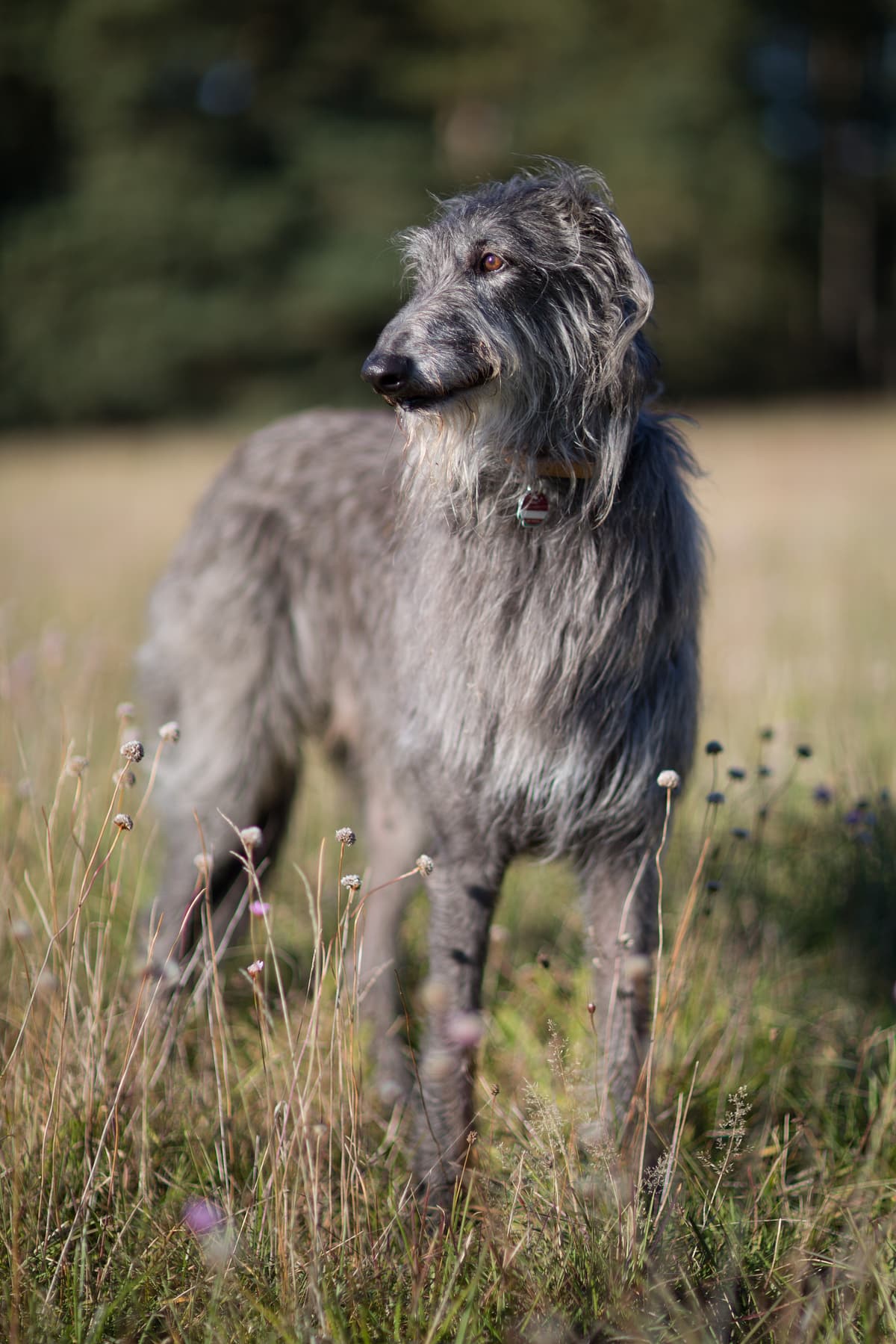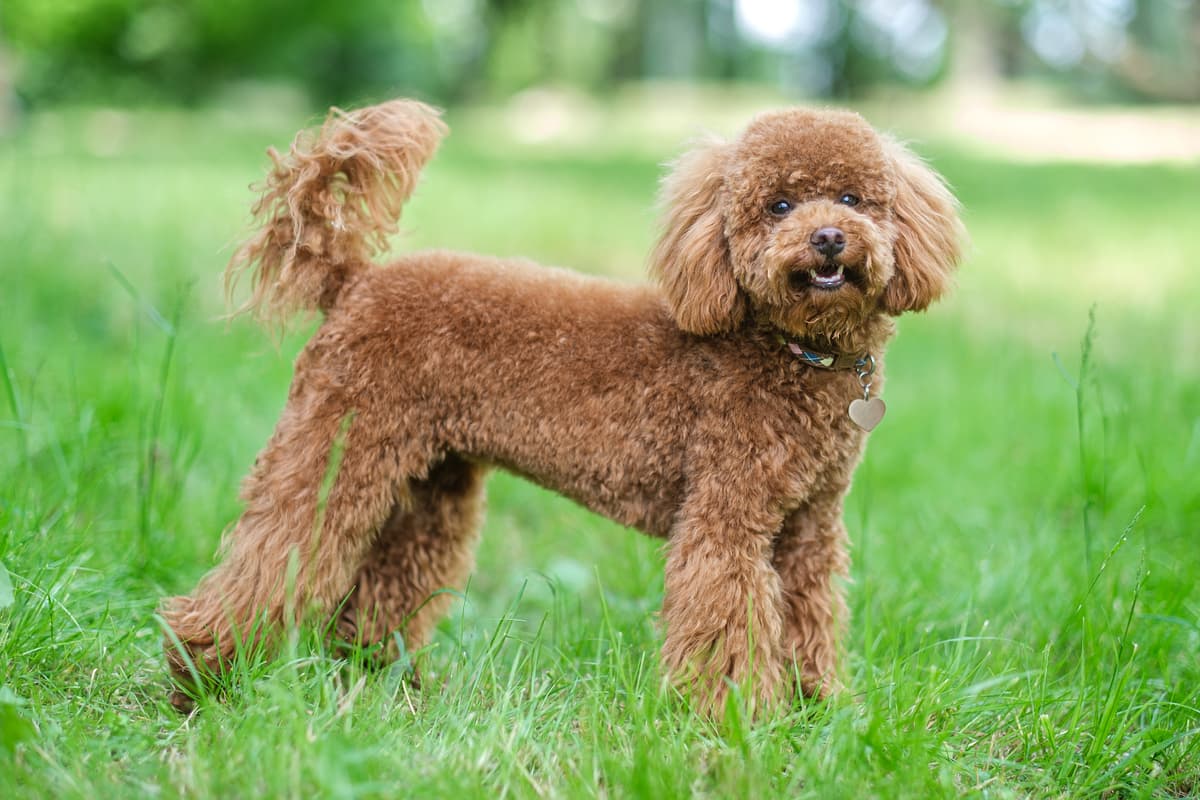Scottish Deerhound vs Poodle
Discover the differences between Scottish Deerhound and Poodle to make the best choice for your situation.
Try different breeds

Scottish Deerhound
Elegant and gentle, this breed combines quiet dignity with a loving, loyal nature. Known for their athletic build and calm temperament, they thrive as affectionate companions.

Poodle
Elegant, intelligent, and highly trainable, this breed stands out for its lively spirit and loyal companionship. Their hypoallergenic coat and playful personality make them ideal family pets.
Quick comparison
Large
39–50 kg
Harsh, wiry
8–11 years
34–43 kg
Moderately active
Medium
20–32 kg
Curly, dense
12–15 years
18–27 kg
High energy
Personality & behavior
Compare the personality traits and behavioral characteristics of both breeds.
Scottish Deerhound
Gentle and friendly with family and strangers
Quick learner, responds well to training
Moderate exercise needs, enjoys daily walks
Occasionally playful, but not overly exuberant
Adjusts to calm homes, dislikes city bustle
Poodle
Warm and sociable with family and guests
Highly intelligent and quick to learn commands
Needs regular activity and enjoys exercise
Loves games and interactive playtime
Easily adjusts to new environments and routines
Care needs
Exercise, grooming, and daily care requirements
Scottish Deerhound
Cardiomyopathy, osteosarcoma
Poodle
Hip dysplasia, Addison’s disease
Suitability
How well each breed fits different living situations and families
Scottish Deerhound
Challenging for novices
Their size and needs require experience and commitment from owners
Not apartment friendly
They need space and may struggle in small living quarters
Highly suitable
Their athleticism matches well with active lifestyles and regular exercise
Generally gentle
Usually patient but can be knocked over due to their large size
Usually compatible
Often sociable with other dogs, but prey drive may affect small pets
Prone to loneliness
They dislike being left alone for extended periods
Poodle
Great choice
Intelligent and eager to please, Poodles are easy for beginners to train and manage.
Highly suitable
Poodles adapt well to apartment life if given daily exercise and mental stimulation.
Perfect fit
Their energy and love for activity make them great companions for active households.
Very friendly
Poodles are gentle and patient with children when socialized from a young age.
Gets along well
Poodles usually coexist peacefully with other pets, especially if socialized early.
Prone to anxiety
Poodles can develop separation anxiety if left alone for long periods regularly.
Breed strengths
What each breed excels at and their best qualities
Scottish Deerhound
- Gentle and calm with family members
- Excellent with children and other dogs
- Quiet and rarely barks unnecessarily
- Low aggression toward people and animals
- Adaptable to relaxed indoor environments
Poodle
- Highly intelligent and easy to train
- Hypoallergenic coat reduces shedding
- Strong bond with family members
- Adaptable to various living environments
- Excellent performance in canine sports
Challenges & considerations
Potential challenges and considerations for each breed
Scottish Deerhound
- Needs large, secure space for exercise
- Prone to heart and bone health issues
- Sensitive to anesthesia and some medications
- Can be stubborn with obedience training
- High prey drive toward small animals
Poodle
- Requires regular professional grooming
- Prone to separation anxiety if left alone
- Needs daily mental and physical stimulation
- Can be reserved with unfamiliar people
- Susceptible to certain genetic health issues
Ready to choose your perfect breed?
Learn more about each breed or compare other breeds to find the perfect match for your lifestyle.
Discover more helpful tools
Make use of our other free tools to get the most out of your pet experience
